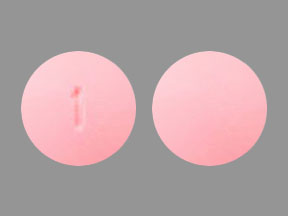Entecavir Disease Interactions
There are 3 disease interactions with entecavir.
NRTIs (applies to entecavir) hepatotoxicity
Major Potential Hazard, Moderate plausibility. Applicable conditions: Alcoholism, Liver Disease
Hepatotoxicity including lactic acidosis, severe hepatomegaly with steatosis, fulminant hepatitis, and hepatic failure has been associated with the use of some nucleoside reverse transcriptase inhibitors (NRTIs) alone or in combination with other antiretroviral agents. Therapy with NRTIs should be administered cautiously in patients with preexisting liver disease, a history of alcohol abuse, or hepatitis. Therapy should be suspended if clinical or laboratory findings suggestive of lactic acidosis or pronounced hepatotoxicity occur. The use of abacavir is contraindicated in patients with moderate to severe liver dysfunction as its safety and efficacy have not been established in these patients.
Entecavir (applies to entecavir) hemodialysis
Moderate Potential Hazard, High plausibility.
Entecavir is removed by hemodialysis. Following a single 1 mg dose of entecavir administered two hours before the hemodialysis session, approximately 13% of the dose was removed over four hours of hemodialysis. Entecavir should be administered after hemodialysis.
Entecavir (applies to entecavir) renal dysfunction
Moderate Potential Hazard, High plausibility.
Entecavir is primarily eliminated by the kidney. Compared to patients with normal renal function (CrCl above 80 mL/min), peak plasma concentration (Cmax) and systemic exposure (AUC) of a single 1 mg dose of entecavir increased by 30% and 150%, respectively, in patients with moderate renal dysfunction (CrCl 30 to 49 mL/min), and 89% and 422%, respectively, in patients with severe renal dysfunction (CrCl below 30 mL/min). Systemic exposure was increased even further in patients with end-stage renal disease managed on dialysis. These patients had an approximately 8-fold increase in entecavir AUC compared to patients with normal renal function. Renal clearance of entecavir decreased by 65% and 89%, respectively, in patients with moderate and severe renal dysfunction. Dosage adjustment of entecavir is recommended for patients with CrCl below 50 mL/min, including patients on dialysis, in accordance with the manufacturer's product labeling.
Switch to professional interaction data
Entecavir drug interactions
There are 160 drug interactions with entecavir.
Entecavir alcohol/food interactions
There is 1 alcohol/food interaction with entecavir.
More about entecavir
- entecavir consumer information
- Check interactions
- Compare alternatives
- Pricing & coupons
- Reviews (3)
- Drug images
- Side effects
- Dosage information
- During pregnancy
- Drug class: nucleoside reverse transcriptase inhibitors (NRTIs)
- Breastfeeding
- En español
Related treatment guides
Drug Interaction Classification
| Highly clinically significant. Avoid combinations; the risk of the interaction outweighs the benefit. | |
| Moderately clinically significant. Usually avoid combinations; use it only under special circumstances. | |
| Minimally clinically significant. Minimize risk; assess risk and consider an alternative drug, take steps to circumvent the interaction risk and/or institute a monitoring plan. | |
| No interaction information available. |
See also:
Further information
Always consult your healthcare provider to ensure the information displayed on this page applies to your personal circumstances.


